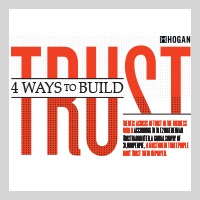 With both candidates scoring record unfavorable ratings, the next president faces an uphill battle to earn the public’s trust in office.
With both candidates scoring record unfavorable ratings, the next president faces an uphill battle to earn the public’s trust in office.
“Believe me.” For anyone who’s been following the election, this is a familiar phrase. According to an article in the Boston Globe, presidential candidate Donald Trump used that phrase more than 30 times (at a rate 56 times higher than his opponents) during the Republican primary debates, and has continued to lean on it moving into the general election, even managing to pepper it into his acceptance speech at the Republican National Convention. Fitting, considering Politifact, a non-profit political fact checking website, rated only 14% of his claims on the campaign trail to be true or mostly true.
Hillary Clinton, for her part, isn’t doing much better. According to a Washington Post-ABC News poll, only 37 percent of people think of her as an honest and trustworthy person. Both candidates are entering the run-up to the general election with double-digit spreads between their favorable and unfavorable ratings. So why do we keep voting for them? Charisma.
“Charisma has long prevailed as one of the most celebrated attributes of leadership,” wrote Hogan CEO Dr. Tomas Chamorro-Premuzic. “A global survey evaluating everyday perceptions of leadership across 62 countries identified ‘charismatic’ and ‘inspirational’ as two of the most recurrent attributes linked to leadership.”
“Indeed, most people struggle to name a famous leader who does not exude charisma, and after decades of mass-media penetration in worlds as diverse as sports, politics, and business, we seem to have habituated to the idea that leaders are worthless without it.”
It would be hard to argue that Trump or Clinton would have gotten very far without their charismatic personalities. When we talk about charisma, what we’re really referring to the sum of four dark-side personality characteristics measured by the Hogan Development Survey (HDS):
Mischievous: Seeming charming, spontaneous, comfortable taking risks, and circumventing rules to advance their personal agendas.
Colorful: Engaging, outgoing, and skilled at taking credit for group achievements to help them stand out from their peers and get noticed.
Bold: Fearless and self-assured, skilled at overstating their strengths and downplaying their shortcomings, and ruthlessly ambitious.
Imaginative: Creative, often to the point of eccentricity, which can help an individual seem bold and innovative.
Put together, these four characteristics can help people, including political candidates, stand out from their peers and competitors and seem like natural leaders. The problem is, these characteristics also erode the trust of the people around you. And where getting to the top is all about seeming like a leader, staying at the top is all about achieving results via an engaged and effective team.
For politicians, this means an agreeable congress and an engaged public putting pressure on their representatives to vote on way or another. Even as their respective national parties rally around them for the general election, there has been plenty of news in recent days surrounding both candidate’s inability to unify support, and that difficulty is unlikely to magically subside on January 20, 2017.
To find out each candidate could turn their unfavorables around without losing the characteristics that have helped them succeed this far, download our complimentary ebook,4 Ways to Build Trust.